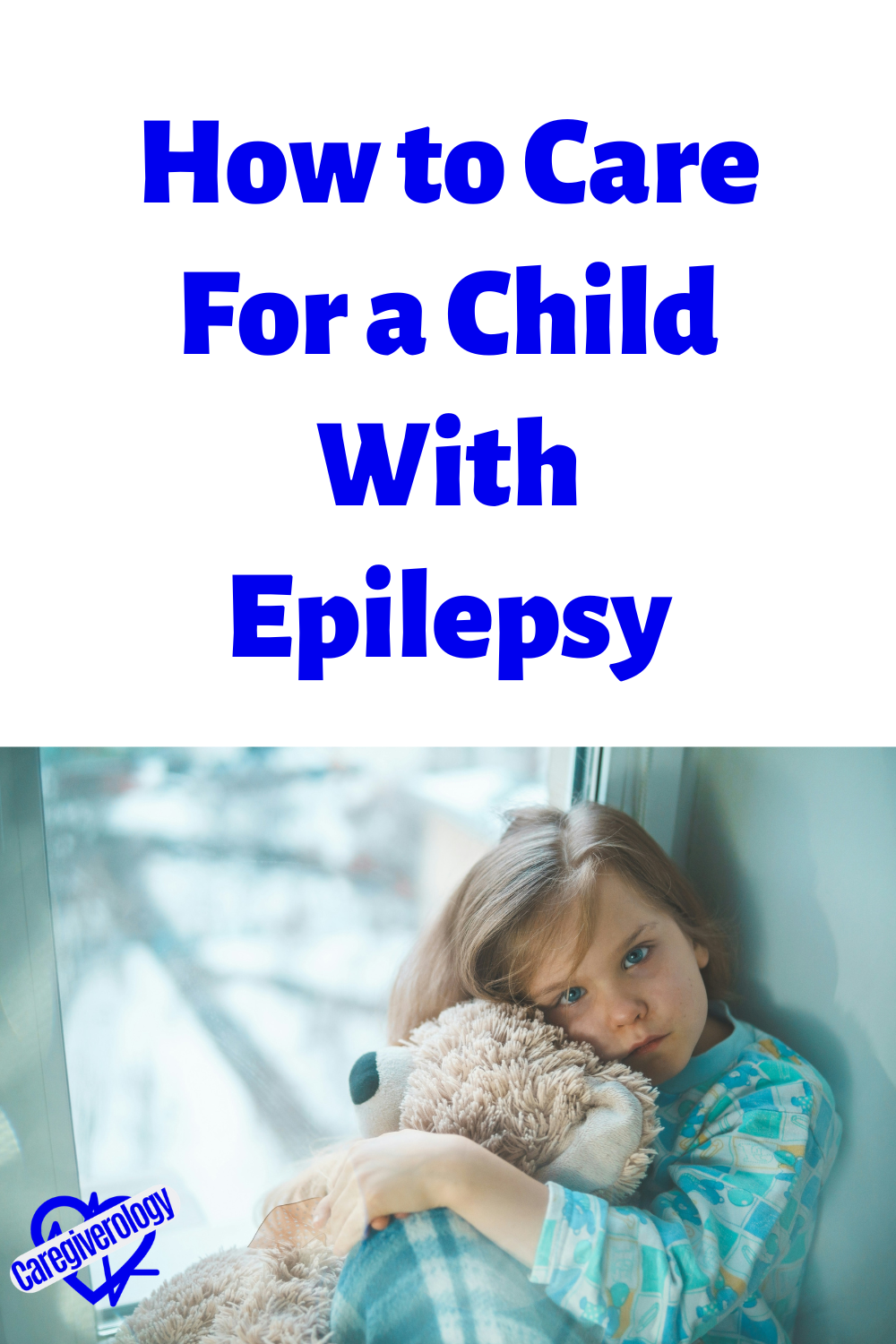How to Care For a Child With Epilepsy

Caring for a child with a chronic illness is a journey that demands resilience, patience, and unwavering love. Think of a child’s world - full of curiosity and wonder - suddenly constrained by the need for constant caution.
The impact of a chronic condition ripples through every aspect of their life. It shapes their physical health, emotional well-being, growth, and sense of identity.
Epilepsy, one of the most common neurological disorders in children, adds a layer of complexity to this journey. The unpredictability of seizures can turn even the simplest moments into sources of anxiety, making it both isolating and frightening for a child.
What makes it even more dangerous is the risk of premature death. According to the World Health Organization (WHO), people suffering from epilepsy are three times more likely to die prematurely than the general population.
If you’re a parent or caregiver to a child living with epilepsy, we’ve designed this guide specifically for you. Join us as we share tips and tricks that will help you decode how to care for them the right way.
Understanding Epilepsy
Epilepsy is more than just a medical diagnosis - it’s a condition that touches every aspect of a child’s life. At its core, this neurological disorder is marked by recurrent seizures, caused by sudden surges of electrical activity in the brain.
Epilepsy often begins in childhood, making it one of the most common neurological conditions among the 0-17-year-old age group. Because it arrives during critical years of growth and development, the early onset of epilepsy is especially challenging.
For both children and their parents, understanding epilepsy is like holding a map through uncharted territory. The right knowledge equips you to navigate the twists and turns that come with the condition, transforming uncertainty into preparedness.
A pediatric doctor of nursing practice (DNP) can help you with it. Baylor University notes that these healthcare professionals specialize in recognizing chronic illness in children, which is what epilepsy in children is categorized as.
Furthermore, they can also guide you through the daily care needs that are tailored to their condition
Worried about how to pick the right DNP for the job? Find a professional nurse who is certified in pediatric DNP programs from a reputed university.
Learning About Your Child’s Seizure Triggers
Most people imagine seizures as sudden, severe convulsions. However, that’s not what a seizure might necessarily look like. It is, in fact, the location of a seizure in the brain that defines what it might cause. Beyond convulsions, seizures might also cause twitches, blank stares, stiffness in the body, repeated or automatic movements, and more.
Just like every child’s experience with epilepsy is unique, so are the triggers that might provoke a seizure.
Understanding these triggers is like uncovering the pieces of a puzzle that, when put together, can help you manage your child’s condition more effectively.
Seizures can be triggered by a variety of factors, some more surprising than others. Common triggers include lack of sleep, stress, or illness. However, sudden loud noises or certain foods can sometimes set off a seizure as well.
If you observe your child closely, you can note any patterns or circumstances that precede a seizure, and begin to identify these triggers. This knowledge allows you to take proactive steps in reducing your child’s exposure to these triggers.
Having A Seizure Action Plan
As a caregiver for an epileptic child, having a seizure action plan (SAP) handy is your best defense. Wondering what an SAP is?
Think of it as an emergency response plan document that explains specific instructions for managing a seizure. These can involve information about recognizing the onset of a seizure, administering emergency medication, and knowing when to call for medical help.
In addition to having a copy of the plan for yourself and family members, you can also share it with your child’s school authorities.
With the SAP, anyone in charge of them in a setting beyond home will know how to help them in case of a seizure. Knowing that not only makes your little one safer outside of the home but also brings you peace of mind.
Dealing With the Emotional Challenges of Children
The emotional challenges that come with epilepsy run deep, often shaping a child’s self-esteem, sense of security, and overall outlook on life.
About Kids Health notes about 23-33% of epileptic children also suffer from anxiety disorders. For a young child, the unpredictability of seizures fuels anxiety, making them feel like they have little control over their world. The side effects of their medications - as well as their abnormal brain activity - can also play a role.
This constant fear of the next seizure can lead to withdrawal, reluctance to participate in activities, or even depression. Self-esteem can take a hit too, as they might feel isolated from their peers, worrying about what others think or fearing judgment.
As a parent or caregiver, it’s essential to recognize and address these emotional hurdles. Open, honest conversations can be powerful, helping your child understand that their feelings are valid and that they are not alone.
Encourage them to express their fears, anxieties, and frustrations, and reassure them that it’s okay to feel what they’re feeling. Additionally, helping your child connect with peers who understand their experiences can also boost their confidence and sense of belonging.
Handling Their Behavioral Problems
Epileptic children often face challenges that go beyond their emotions. They sometimes grapple with behavioral issues that can feel overwhelming for both them and their families.
These behaviors, which might include irritability, impulsivity, or mood swings, are not just random outbursts. They’re often deeply connected to the neurological effects of epilepsy or the side effects of medication.
According to WebMD, the most sensible way of dealing with these behavioral challenges is to treat them like normal children. You have to remember that despite their condition, all children need discipline.
Letting them use their epilepsy as an excuse for bad behavior is a recipe for disaster. Your overindulgence could impact their social skills negatively, in turn impacting their quality of life in the long run.
If you think their medications are causing such issues, talk to your healthcare provider about it. In any case, living in the fear of provoking your child or causing a seizure isn’t healthy for anyone.
Frequently Asked Questions (FAQs)
How to diagnose epilepsy in children?
Electroencephalogram (EEG) is the most common test that helps in diagnosing epilepsy. By measuring the electrical activity of the brain, it recognizes any abnormal pattern that might be associated with the condition. Other tests that are sometimes recommended for its diagnosis involve CT scans and MRIs.
Can epilepsy be cured permanently?
According to the Cleveland Clinic, epilepsy is not a condition that can be cured permanently, which makes it a chronic illness. However, multiple treatment options can help one manage the seizures. Up to 70% of epileptic people have found medications to manage their disease successfully.
What is hemispherectomy?
Hemispherectomy is a rare and complicated brain surgery that people whose seizures don’t respond to medicine undergo. The surgery - which requires a specialized neurosurgeon - is mostly performed on children, rarely on adults. It removes or disconnects the unhealthy hemisphere of the brain that causes a seizure to eliminate their future likelihood.
Caring for a child with epilepsy is a journey that requires knowledge, compassion, and resilience. While the challenges are real - from understanding triggers to addressing emotional and behavioral issues - remember that you’re not alone in this journey.
With the right strategies, support, and medical guidance, you can help your child navigate the complexities of epilepsy and lead a fulfilling, joyful life.
Guest Articles Written for Caregiverology
From How to Care For a Child With Epilepsy to Home
Recent Articles
-
Common Truck Crash Injuries and Legal Remedies - Caregiverology
Jul 19, 25 10:49 AM
Known for its sun-drenched beaches, vibrant arts scene, and bustling maritime industry, Fort Lauderdale is a city that sees heavy traffic both on its roads and at its busy port. Unfortunately, with th… -
Why Expert Legal Help Matters After Serious Injury - Caregiverology
Jul 19, 25 10:35 AM
In Houston, over 67,600 car crashes occurred in 2023, resulting in 290 fatalities and 1,612 serious injuries. That’s roughly 185 accidents every day. -
How Life Care Planners Support Injury Recovery - Caregiverology
Jul 19, 25 10:18 AM
In Los Angeles, life care planners play a vital role in supporting injury recovery, especially for individuals facing catastrophic injuries such as traumatic brain injuries or spinal cord damage.





New! Comments
Have something to say about what you just read? Leave a comment in the box below.